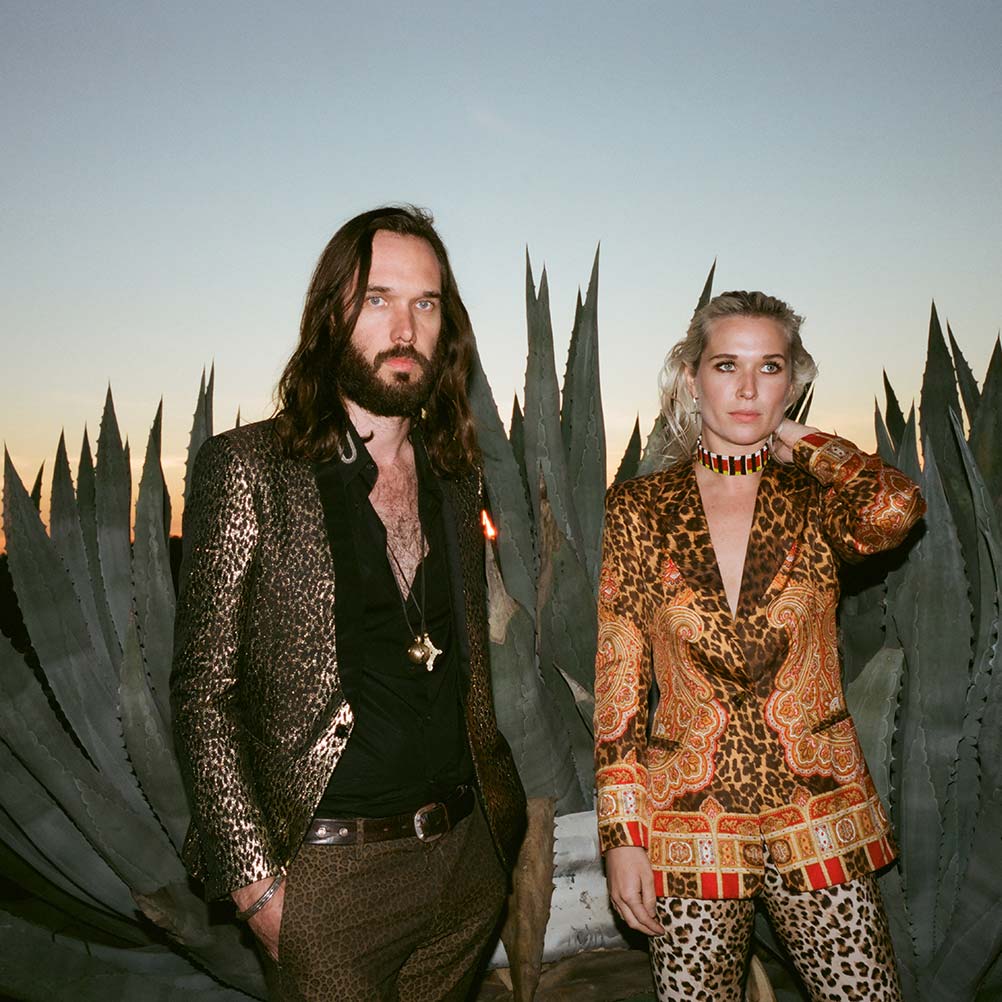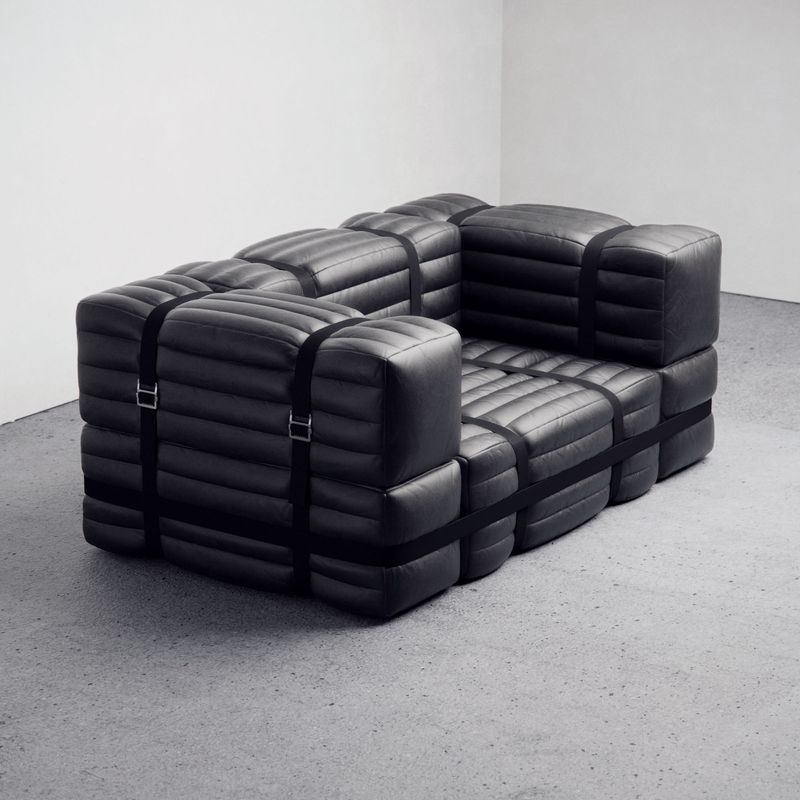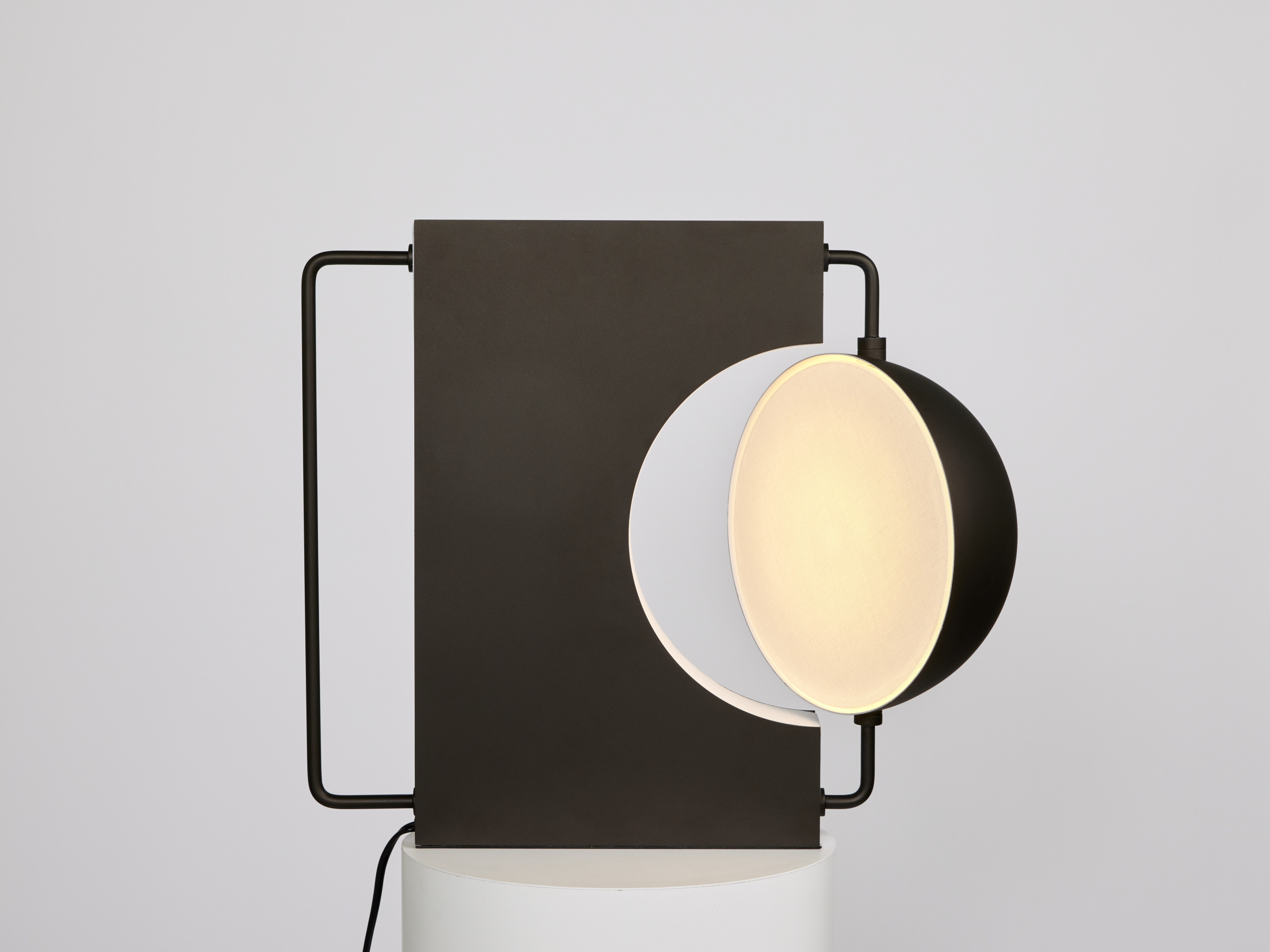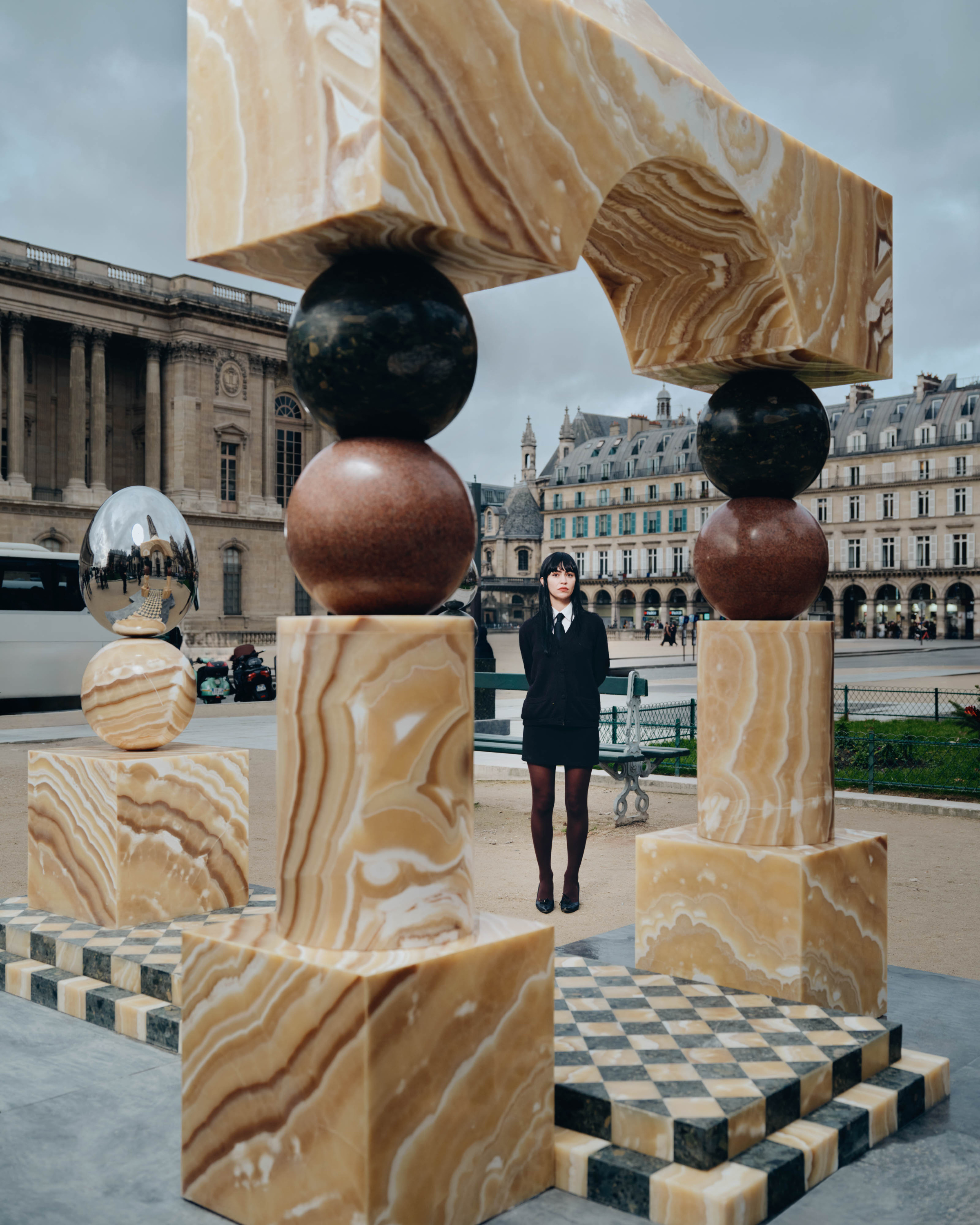Creativity is in the DNA of siblings Natalie and Elliot Bergman, also known as the multicultural pop group Wild Belle. Born to musicians with a deep appreciation for art and travel, the two have been inspired to create their whole lives.
But it’s not just music performance. Natalie is a visual artist and collagist. Elliot paints, makes instruments, and is a sculptor—note his recent Peace Bells project, a massive showcase that combined sound and steel, where he played gamelan-inspired music on bells made of melted guns and bullet casings involved in Chicago street violence.
Wild Belle represents the duo’s same penchant for finding inspiration far and wide. Drawing from Jamaican rocksteady and reggae, the two construct a tropical pop sound that channels dub, dancehall, and West African music. Natalie’s smoky, sultry voice links the eclectic mix, twisting around Elliot’s baritone saxophone and electrified kalimba melodies.
Natalie calls the Bergmans’ third and latest LP, Everybody One of a Kind, a “fully realized version of Wild Belle.” Instead of traveling around the country to work with different producers in different studios—as the duo did for their previous album, Dreamland—the siblings created their latest almost entirely in Elliot’s Chicago studio and then his newly finished Los Angeles studio.
We spoke with Natalie in advance of the band’s headlining tour in support of Everybody One of a Kind to talk about process, being surrounded by art, and inspiration from travel.
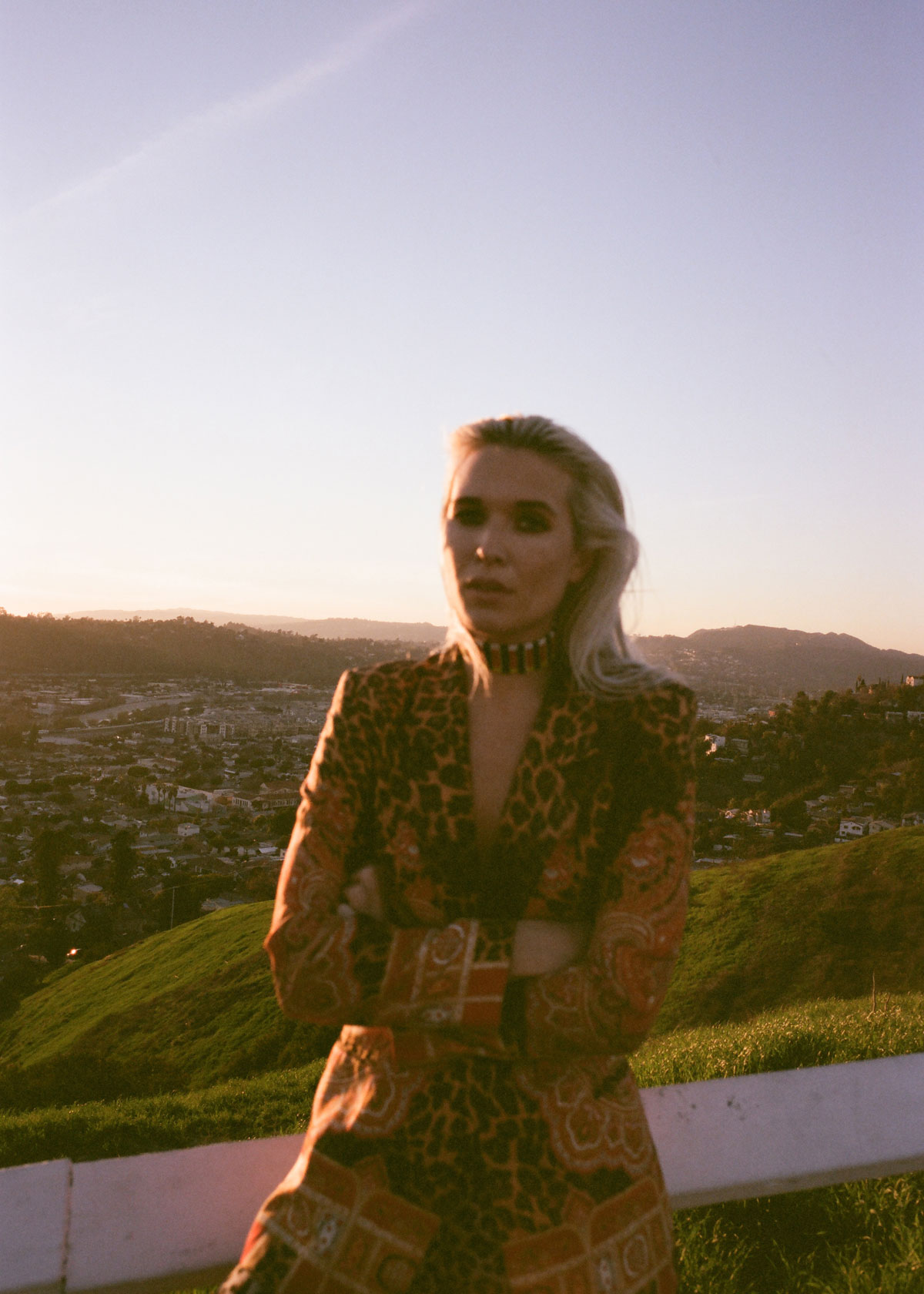
Natalie Bergman, one half of brother-sister indie duo Wild Belle grew up with her brother and creative partner, Elliot Bergman, in an environment where musical expression was always supported. Photo by Leslie Kirchhoff
Take me through the creative process of a Wild Belle song. Do most songs start from vocal ideas, studio tracks, or a combination? Do you generally start things together or separately?
This album is our most bare bones—just the two of us. It’s more stripped back in a lot of ways but also more radical than our other records because it was just us—we didn’t bring a lot of musicians in. We were in a sort of heady space. It feels like our most experimental album because we didn’t have any outside influence; it was just us bouncing ideas back and forth.
But the songwriting process is different every time. Sometimes Elliot will come to the table with a beat he’s made. Most of the time, we just get together in a room and we’ll be playing individual instruments and vibe on something. We try to feel some sort of emotion or connection to a sound. We’re trying to create something that resonates with us so that hopefully it resonates with our audience.
Sometimes I’ll have a poem I wrote on a plane or in the van. Sometimes I’ll come up with a little melody and we’ll build off of that. Really, it starts with an emotion and then we work off of that. I’m stoked on the natural evolution of the sound.
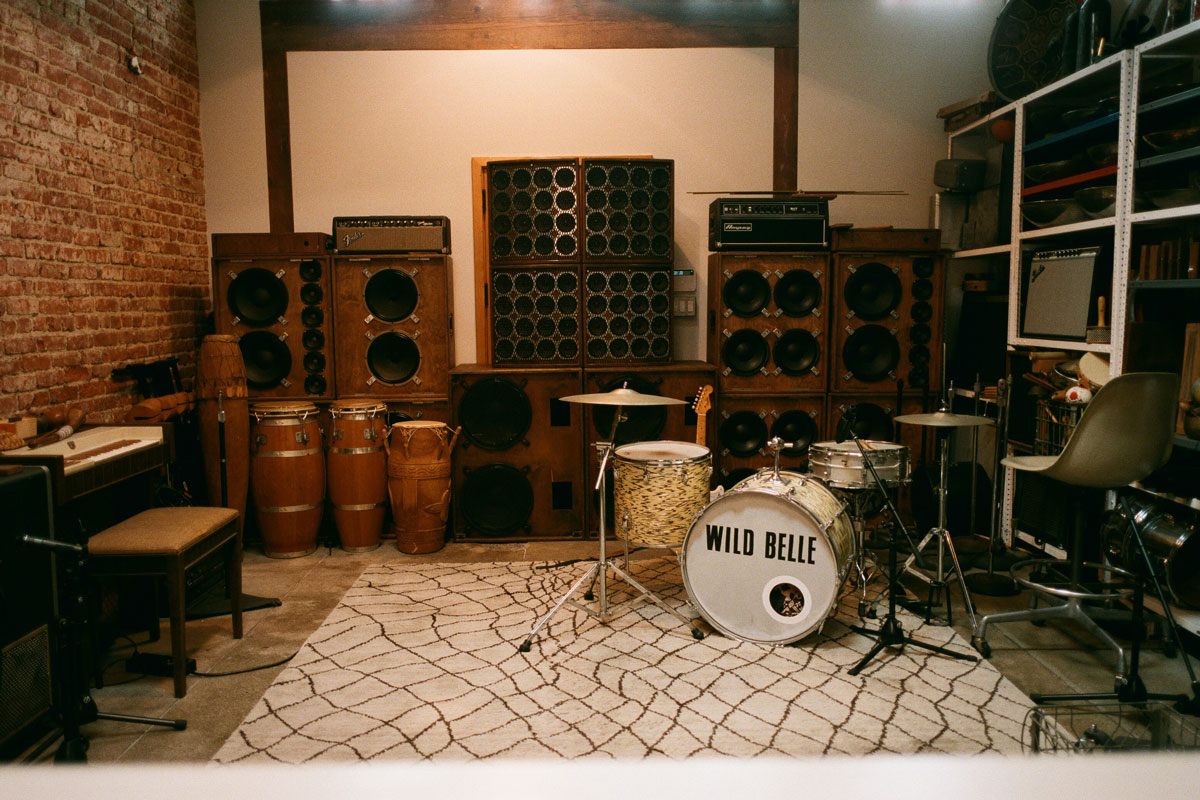
Instead of traveling around the country to work with different producers in different studios—as the duo did for their previous album—the siblings made Everybody One of a Kind almost entirely in Elliot’s Chicago studio and then his newly finished Los Angeles studio. Photo courtesy of Wild Belle
How does having Elliot’s studio affect the songwriting (and overall creative process)? Can you pop in whenever you want?
First of all, I can go to the studio whenever I want. (Laughs)
Elliot has a studio in Chicago, and he just finished building this beautiful studio in LA. It’s sort of become our clubhouse here [in LA]. He found this cool space; it was basically just a cellar. There was nothing in there. We gutted what was left in there and spent a year going to and from the salvage yard and finding all of these beautiful materials, woods, tiles, and stones. We found this old console from Israel—it’s an old Studer. That’s the centerpiece of the room.
It’s nice to have a home base and make the music from where you’re from. We’ve created this world around us of instruments and bells and art. We have this sort of all-encompassing universe we’ve created over the years, and it feels like this album and this studio is the fully realized version of Wild Belle. It’s fun to have this space that’s ours and is this small paradise that facilitates our creation. There’s a small studio next to this studio that’s our art space, and that’s where I’ve been making a lot of drawings and collages and Elliot has been doing his bell work. I think that if you have a beautiful space to work in, it allows you to continue creating.
“I think that if you have a beautiful space to work in, it allows you to continue creating.”
How do your trips abroad affect your music and art?
Fortunately our music has allowed us to travel. We were invited to Jamaica this past winter—[Island Records founder] Chris Blackwell has a place and invited us for the past few years to DJ at his New Year’s Eve party. He’s a legendary motherfucker. He claims he brought Bob Marley to the States and the UK. He has this amazing roster of musicians and so many fun stories. He’s seen so much in his life. And we’re record collectors, so when we’re asked to DJ, we bring our 45s. He was very much a part of 45s [becoming popular]—renting out jukeboxes and loading them with 45s. He was spending time in Jamaica with Ian Fleming and all of these rock star writers and musicians, and then he met Bob Marley when he was super young. He just has this amazing life story, and it’s fun because we’re welcomed in Jamaica by him. He creates this environment for artists to come and express themselves.
It’s such a musical country. I can’t tell you why I got into the music at such an early age, but I was just turned on and went into all of the vaults and explored the music. I love the legacy that the country has. It’s an honor to be invited to go there.
But it’s all of our travels [that influence us]. Our music has brought us to Brazil and France and all over the world. Travel definitely has impacted our music—how could it not? We’re a product of our environment, and we’re nomadic people.
Does the whole band make a living from music?
We all make a living off of our music … and I wouldn’t recommend doing this. (Laughs) It’s a fucking tough gig, but I wouldn’t choose anything different.
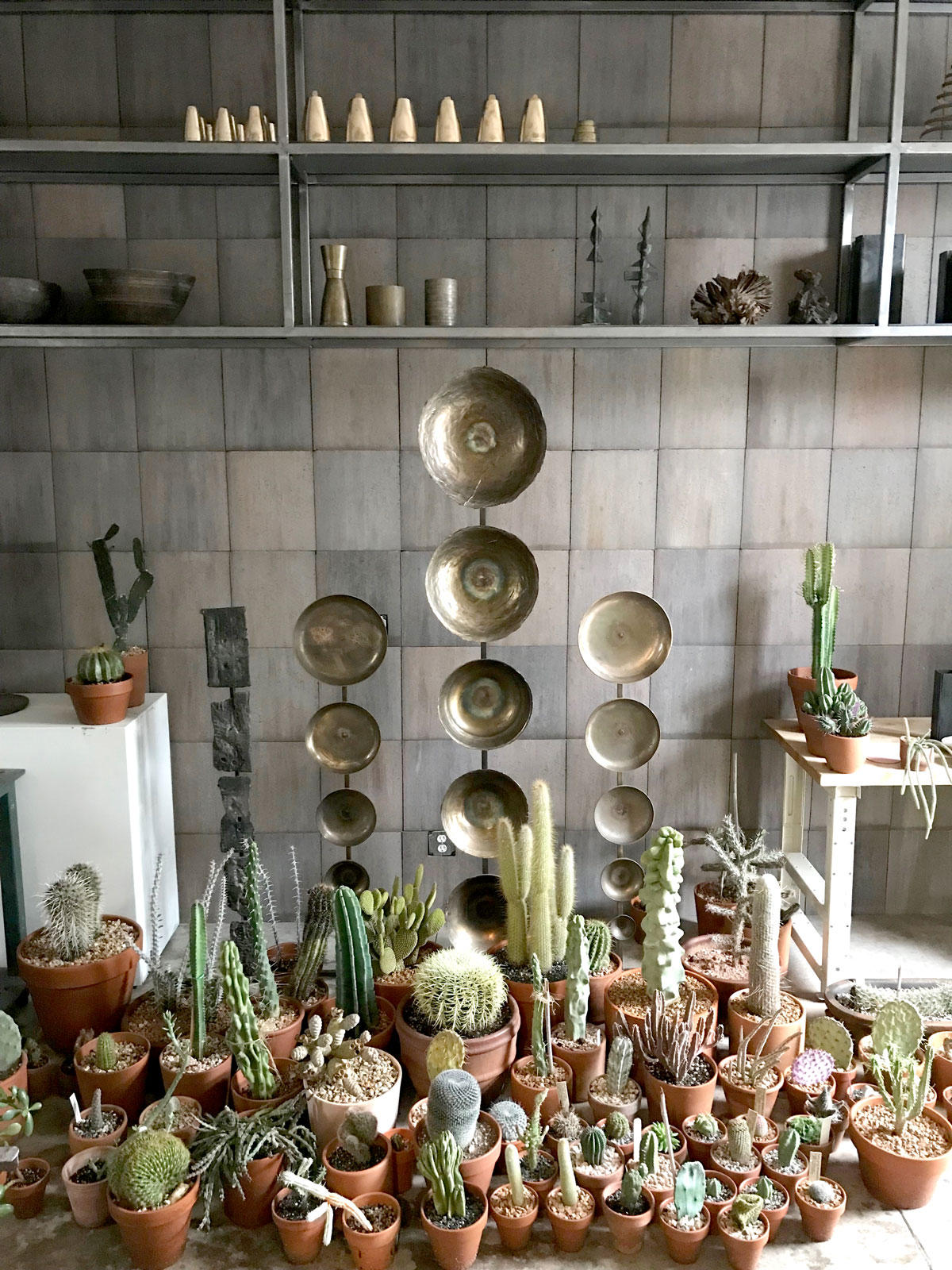
Elliot played gamelan-inspired music on bells made of melted guns and bullet casings involved in Chicago street violence as part of his recent “Peace Bells” project. Photo courtesy of Wild Belle
Was that always the path you wanted to take growing up?
Our parents were very supportive of music and the arts. A lot of people have stories like, “We had to play in the garage so our parents didn’t hear the music.” People aren’t always allowed to be creative because it doesn’t seem like the most sustainable career. But our parents were very musical, and they fostered a very musical environment. It was always in me and around me, so it was kind of my option in life. And I’m thankful for it.
My mom was always playing piano and playing standards, Gershwin, and some of the greats. And my dad has his own renditions of songs. He has a rendition of “This Must Be the Place” by Talking Heads—he slows it down, and it’s this beautiful ballad. Every time he plays it, it makes me cry. It sort of takes on a whole new meaning when you slow down a song that’s light and lighthearted and you actually listen to the words. It’s actually a sad song. It’s about finding a home in a place that isn’t very welcoming here on Earth. Is Earth our home? Is heaven our home? Can you find home in a person? It’s a very lonely song. I’m about to start crying!
Do you feel your working relationship with Elliot has evolved over your three albums? What have you learned from working with each other musically?
At this point, there’s no censor around what we do. We’re very transparent with each other. We’ve developed this language over the years that only we really understand. We share a very similar palette. Sonically, we’re attracted to the same things—visually, too. It’s nice to have a partnership where you’re so eye-to-eye. I think we’ve honed our style on this record. We have so much unreleased music.
It’s nice to find your people in the world. He happens to be my brother, but it’s going to be an ongoing partnership, whether we continue Wild Belle or start our own things. I think he’s always going to be my guide in a way. I look up to him in a lot of ways; he’s been one of my biggest inspirations in life musically and artistically. And he turns me onto all of these cool, experimental bodies of work. I’ve seen so much art in this world through him. I want him to start exploring his career as an artist more, because he’s an incredible sculptor and painter. He’s an insane talent. I think that naturally we might go our own ways, but I’m always sort of navigated back to him because he is my brother and my blood. It’s just a good creative partnership.
Any relationship, when you spend time creating together and traveling together, it wears on you, and we drive each other crazy. But it’s worth it.
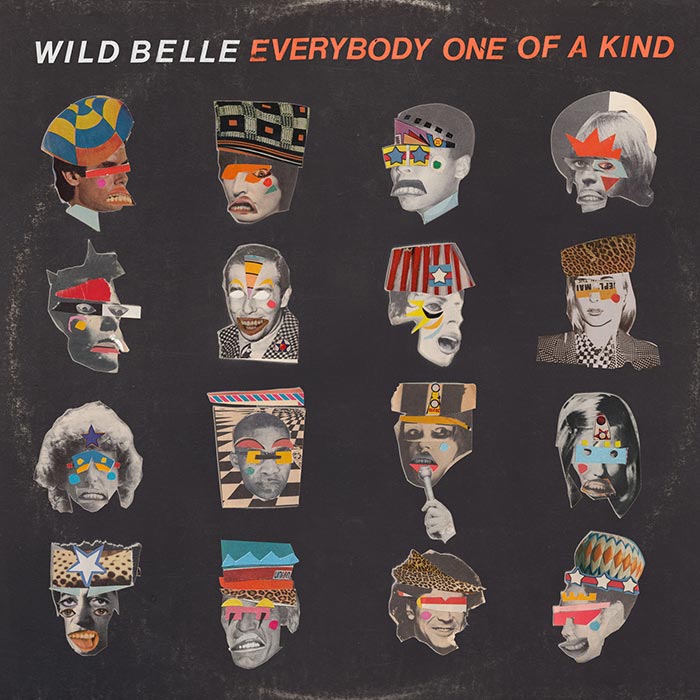
‘Everybody One of a Kind’ by Wild Belle. Courtesy of Love Tone
This article originally appeared in the Spring/Summer 2019 issue of Sixtysix with the headline “Wild Belle: Everybody One of a Kind.” Subscribe today.
